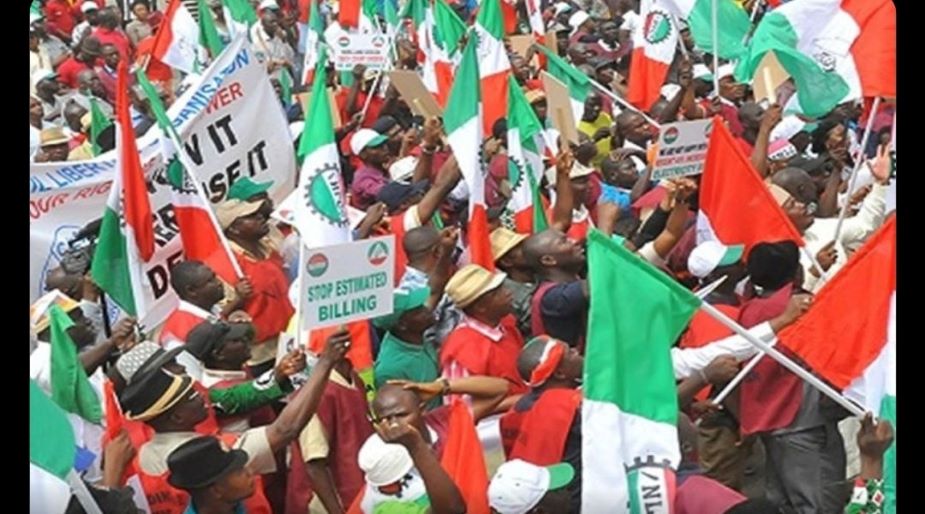May Day Strikes: Nigerian Workers Demand Urgent Wage Review Amid Soaring Inflation
LAGOS, Nigeria – May 1, 2025
Nigerian workers marked International Workers’ Day with nationwide protests and strikes, demanding an urgent review of the N70,000 minimum wage to address the crippling cost-of-living crisis. Organized labour unions, including the Nigeria Labour Congress (NLC) and Trade Union Congress (TUC), decried stagnant wages, rising inflation, and widespread non-compliance with the current wage framework, calling the government’s efforts “grossly inadequate.”
Key Demands and Protests
- Wage Review: Labour leaders insist the N70,000 minimum wage, implemented in 2024, is obsolete due to 33.2% inflation and 40.01% food inflation (NBS, March 2025).
- Implementation Crisis: Only 13–17 states have adopted the N70,000 wage (BudgIT, April 2025), while private-sector compliance remains sporadic.
- May Day Theme: “Reclaiming the Civic Space Amid Economic Hardship” reflects workers’ frustration over unfulfilled promises and deteriorating living standards.
Worker Testimonies and Hardship
- Adewale Johnson (Oyo State Teacher):
- “I earn N33,000 monthly. The promised wage never came. Food prices have doubled-how do we survive?”.
- Comrade Julius Laye (TUC Bayelsa Chairman):
- “Hyperinflation from subsidy removal and taxes has made N70,000 insufficient for basic needs”.
- Joe Ajaero (NLC President):
- “The N70,000 wage can’t buy a bag of rice. Workers are hungry and angry”.
Government Response and Commitments
- Senate President Godswill Akpabio:
- Pledged collaboration between legislative and executive arms to address workers’ concerns.
- Federal Government:
- Reduced minimum wage review cycle from five to three years, but workers demand immediate action.
- State Failures:
- Many states, including Oyo, Ebonyi, and Imo, still pay below N40,000 to civil servants.
Economic Context and Labour’s Ultimatum
- Subsidy Removal Fallout: Tinubu’s 2023 fuel subsidy removal and naira devaluation spiked living costs, triggering protests1.
- Private Sector Struggles: Employers cite rising operational costs, delaying wage implementation5.
- NLC’s Next Steps:
- Threaten broader strikes if wage reviews and arrears are not addressed

















